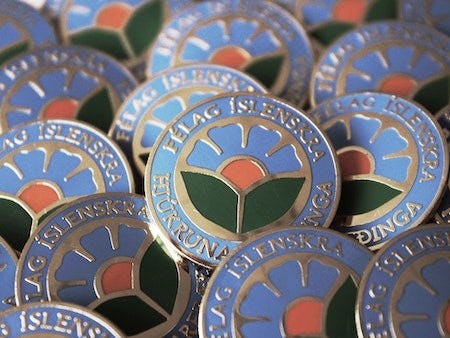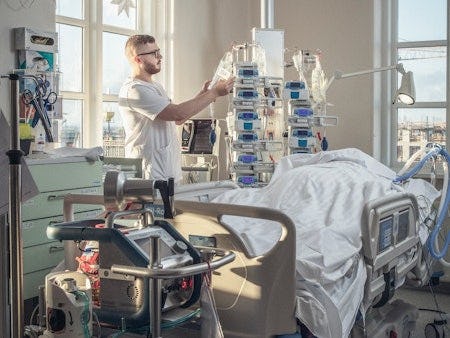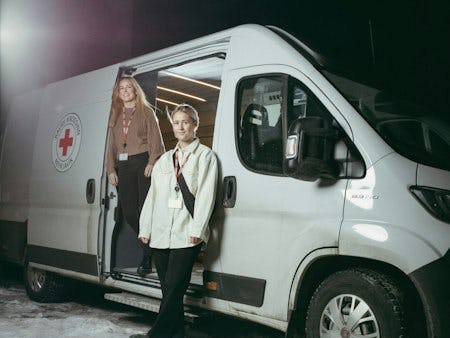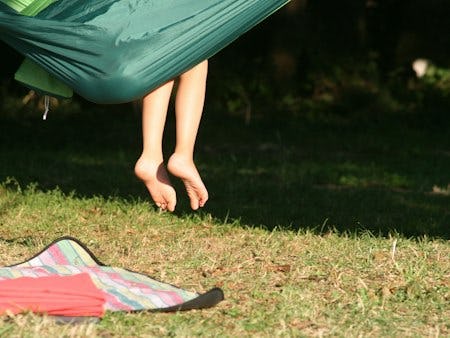INA structure
General Meeting
The highest authority concerning the affairs of the Association rests with the General Meeting. A General Meeting shall be held in May every year. The Governing Board shall be comprised of members with full membership: the Association’s President, six board members and two alternates selected from among members with full membership.
INA representative
In each major hospital or other health care institutions at least one employee acts as a representative of the Icelandic Nurses´ Association. Their responsibility is to make sure that members´ rights are upheld.
Professional Sections
Within the Icelandic Nursing Association 24 professional sections operate. They operate to the advancement of nursing in the area concerned and act as advisors to the Governing Board and committees of the Association.
The professional sections operating are for example pediatric nurses, emergency nurses, rehabilitation nurses, psychiatric nurses, critical care nurses, public health nurses, heart nurses, nurse managers, endoscopic nurses and oncology nurses.
Local Sections
The Association also has local sections operating in local areas of Iceland. The local sections operate to the advancement of nursing in their community and act as advisors to the Governing Board and committees of the Association.
Committees
The Association has appointed various committees and fund administrations, such as a negotiating committee, ad hoc committees, the science fund board of administration and the vacation fund board of administration.
INA journal
The Association publishes a journal, that includes reviewed scientific articles, clinical article and news.
Alliances
The INA collaborates with the professional unions of midwives, physicians and nursing assistants on matters concerning the joint interests of their members. This is, however, not on a regular basis, but encourages more wide-ranging discussions on important issues.
International co-operation
The Icelandic Nurses´Association is a member of the Northern Nurses´Federation (SSN), the European Federation of Nurses (EFN), the International Council of Nurses (ICN).
Funds
Vacation fund members are nurses who contribute a percentage of their salaries to the fund. The fund is based on a points system. The INA’s vacation fund owns eight holiday houses and flats in different parts of the country and during the summer months the Association rents additional holiday accommodation. The houses and flats are rented out to fund members at favourable rates provided they have accumulated a sufficient amount of points. Fund members earn 1 point for every calendar month of work. The points may also be used to purchase various gift vouchers made available by the vacation fund.
The vocational training fund provides grants for study programs, courses and conferences as well as for other expenses related to these activities. Allocations from the fund are made six times a year.
Grant applications to the Vocational Training Fund are submitted My Pages, but access to this portal requires the use of either IceKey or electronic ID. The maximum amount for which applications can be made every 24 months is ISK 350,000.
Applications
Applications are submitted through the portal My Pages. The applications must precisely specify the purpose for which the grant will be used, i.e. study program/course/conference/field visit, as well as related expenses such as airfares or fuel cost.
Eligibility
A review is made of an applicant‘s fund contributions over the last three months immediately preceding the event for which the application is made.
A fund member whose fund contributions exceed ISK 800 per month during the previous three months is entitled to a full grant, whereas a fund member with contributions lower than ISK 800 per month during the last three months is entitled to a partial grant, i.e. ISK 175,000 over a period of 24 months.
What is the grant for?
In order to qualify for funding, projects must generally relate to the fund member‘s field of nursing and be intended to increase the member‘s professional competence in nursing, management, communication, personal empowerment and foreign language skills.
Funded:
- Costs relating to study programs, courses, conferences, symposia, and professional field visits to healthcare facilities where organised programmes of at least 6-8 hours are provided
- Travel expenses (e.g. airfares or transport costs)
- Hotel and accommodation expenses
Not funded:
- Subsistence (food expenses) and travel within cities/municipalities
- Wage loss
- Books or educational materials
- Recreation courses
- Other occupational courses
- Excursions to healthcare facilities where organised professional programmes of at least 6-8 hours are not provided
In order for an application to be processes and grant payments to be made, the application must be accompanied by the following documentation:
- confirmation of payment for study program/course/conference/field visit
- in the case of a field visit: programme for the visit
- confirmation of the payment of flight tickets
- confirmation of payment for accommodation
- confirmation of fuel payment which details fuel prices for the day in question
A confirmation text appears on the screen when an application has been submitted. The application can also be seen in an overview of applications on My Pages. The same confirmation text is also sent by e-mail. If none of this has appeared, the application submission has not been successful.
Payments
Valid applications submitted to the fund are assessed during board meetings of the Vocational Training Fund and grants are paid out on the 15th day of each payment month. Grant payments are made in February, April, June, August, October and December.
Fund members are notified by e-mail when the board has reached its decision.
The support fund provides financial assistance to Association members in the event of sickness or accident. The fund supports and empowers members during rehabilitation after sickness or accident and assists members in taking preventive measures concerning their health and wellbeing.
The right to benefits from the fund is acquired when an Association member has paid contributions for a total of 6 months; however, the last 3 payments preceding the incident for which assistance is sought must be consecutive.
Birth grant
The maximum birth grant paid to a parent for each child is ISK 250,000. The exact amount paid depends on whether the parent is in a full-time or part-time position. Applications for birth grants must be made within one year of the child’s birth. Applications are made through Mínar síður.Health grant
A grant totalling ISK 60,000 is available annually for health-related expenses. Health grants are generally taxable and the tax is deducted from the payment before it is made.Grants for sports, fitness programmes or rehabilitation are exempt from taxation.
Applications are made through Mínar síður.
Mínar síðurFuneral grant
Applications for funeral grants are made at the INA office: Skrifstofa Fíh, Suðurlandsbraut 22, 108 Reykjavík.Funeral grants are paid for:
- The funerals of active fund members
- The funerals of fund members who have given up work and pass away within a year from when the last fund contributions on their behalf were received
- The funerals of fund members’ children (18 years of age and younger)
As of 1 January 1994 employers were obligated to contribute sums amounting to 1.5% of the basic salary of nurses to a science fund. The fund is held and administered by the Icelandic Nurses’ Association and is divided into two sections, A and B.
The Association handles payments to its members from the A-section during the first quarter of each year. Payments are made into the members’ bank accounts. Because of some misunderstanding concerning the science fund, it should be pointed out that no applications are necessary for grants/allocations from the fund.
So that payments can be made, however, it is imperative that all Association members who have received salaries in accordance with the current wage settlement submit their banking details. Banking details can be submitted on Mínar síður (My pages, members‘ personal pages on the Fíh website.)
As for the B-section of the Science Fund, some 3% of the fund’s income is reserved for sponsoring research and development projects. Allocations from the B-section are made once a year. Application deadlines are the 15th of march every year. Further information and application form is found here.
Icelandic Nurses’ Research and Science Fund
The aim of the fund is to give financial support to nurses undertaking research and scientific work related to nursing in Iceland. The financial assistance is intended for all areas of research. The fund does not give financial support for courses of study. The fund was established on 12 May 1987 by Ms María Finnsdóttir, director of education at the Icelandic Nurses’ Association.The Memorial Fund of Mr Hans Adolf Hjartarson
Hans Adolf Hjartarson, executive director, died in January 1951. The fund was established by his family and class companions in order to support the further education of nurses. This was done in fulfilment of the wishes of the deceased to express his gratitude for the excellent nursing he received at Landspítali.
Memorial cards are available at the Association’s office, tel. 540 6400.The Kristín Thoroddsen Memorial Fund
Ms Kristín Ólína Thoroddsen, b. 29 April 1894 - d. 28 February 1961, was matron of Landspítali and the School of Nursing from its foundation in 1941. Former students and other nurses established this fund upon her death as a token of gratitude and respect for her pioneering achievements. The aim of the fund is to reward nurses who have excelled in their studies and shown exceptional talents for nursing. The fund also grants scholarships for further education in nursing. Memorial cards are available at the Association’s office, tel. 540 6400. F
Statutes of the INA
Icelandic Nurses‘ Association Code of Ethics
The core values of nursing are compassion for its clients and respect for their lives, welfare and right to liberty and security of person. The role of the nurse is to promote health, improve conditions and ease suffering. Nurses perform their duties with respect for the individual and without discrimination.
1. Nurses and Professional Responsibility
Nursing is based on professional knowledge, research, experience, interpersonal communication skills, self-knowledge and moral awareness. Above all, nurses have a professional duty towards those in need of care.
1.1.
Nurses maintain their knowledge and skills and are professionally, morally and legally responsible for their occupational activities.
1.2.
Nurses participate in the development of nursing knowledge and base their work on evidence-based practice.
1.3.
Nurses uphold ethical standards at work and encourage discussions on moral issues.
1.4.
Nurses recognise their own limitations at work and do not perform tasks that are outside their realms of knowledge or training; instead they consult with colleagues or seek expert advice with the interests of their clients at heart.
1.5.
Nurses may be released from their duties if they contravene their moral conscience.
1.6.
Nurses use their professional titles in such a manner that appropriately indicates their knowledge and responsibility.
1.7.
Nurses do not use their professional titles for advertising any other activities than nursing.
1.8.
Nurses shall not receive perquisites from their clients.
1.9.
Nurses engaged in scientific research comply with applicable laws and regulations at all times.2. Nurses and Clients
Nurses are advocates for their clients, safeguard their dignity and rights and ensure they are treated with respect and integrity. Nurses defend their clients‘ right to self-determination and the right to receive the best available service at any given time.
2.1.
Nurses protect the clients‘ needs for holistic nursing.
2.2.
Nurses shall enable clients or guardians to take informed decisions.
2.3.
Nurses ensure that clients are given accurate and timely information, preparation and support.
2.4.
Nurses defend their clients‘ right to privacy by observing confidentiality and discretion and complying with codes of ethics and law when sharing identifiable information.
2.6.
Nurses required to testify in a court of law on private matters concerning their clients shall seek professional advice.
2.8.
Nurses report on any incident, conduct or negligence where there is reason to suspect violation against a client. The interests of clients shall always take precedence over the interests of places of employment.
2.10.
Nurses defend their clients‘ right to die with dignity.
2.12.
Nurses seek to tailor their interactions and demeanour to the personal development and needs of their clients.3. Nurses, Workplaces and Colleagues
Nurses are at all times familiar with the strategies, goals and rules of their places of employment and comply with them in so far as they are compatible with the core values of nursing and ethical standards.
3.1.
Nurses are aware of their duties and rights at any given time and participate actively in implementing evidence-based knowledge and professional practices.
3.2.
Nurses treat their colleagues with respect, give support in difficult situations, and provide guidance where corrective action needs to be taken.
3.3.
Nurses encourage honest and professional cooperation.4. Nursing and the Community
Nurses participate actively in public dialogue on health matters as well as in policy formulation and the advancement of health services.
4.1.
Nurses respect their professional titles and show professional loyalty, both inside and outside their places of employment.
4.2.
Nurses endeavour to uphold professional and ethical standards in all discussions and decisions concerning the welfare of the community.
4.3.
Nurses endorse sustainable development.Any person who believes that a nurse has transgressed this code may refer their query to the Ethics Committee of the Icelandic Nurses’ Association.
Icelandic Nurses’ Association, Board of Ethics, May 2015.
Adopted by the General Meeting of the Icelandic Nurses’ Association on 18 May 2015.





